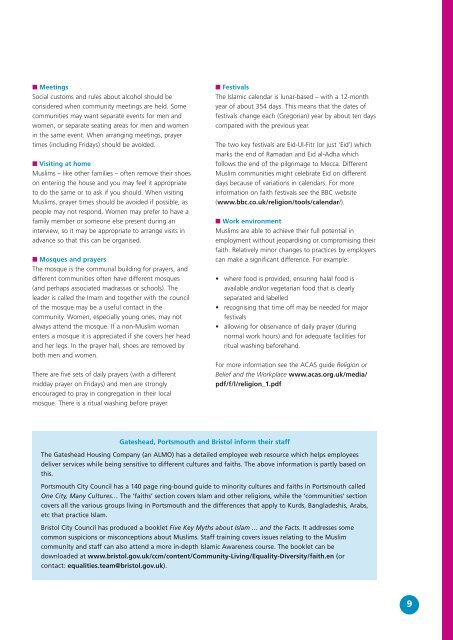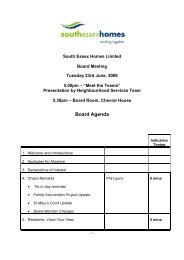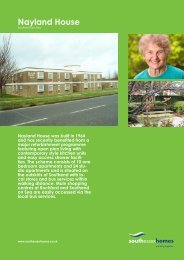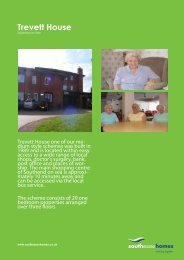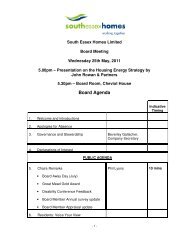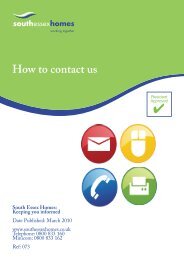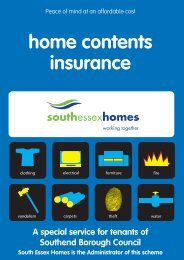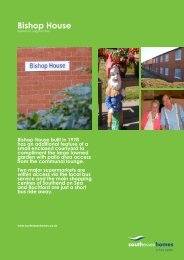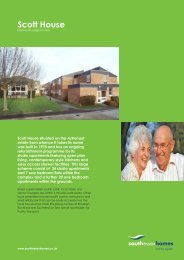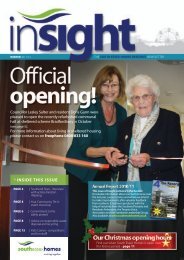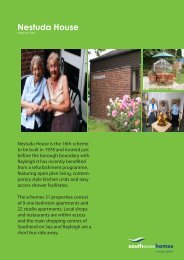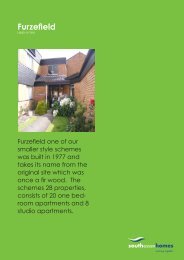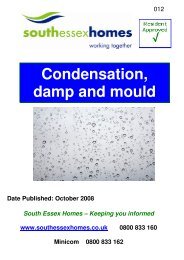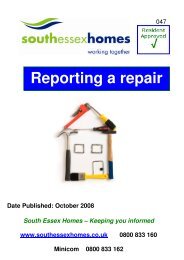A Guide to Engaging Muslim Communities - Matrix Housing ...
A Guide to Engaging Muslim Communities - Matrix Housing ...
A Guide to Engaging Muslim Communities - Matrix Housing ...
You also want an ePaper? Increase the reach of your titles
YUMPU automatically turns print PDFs into web optimized ePapers that Google loves.
■ Meetings<br />
Social cus<strong>to</strong>ms and rules about alcohol should be<br />
considered when community meetings are held. Some<br />
communities may want separate events for men and<br />
women, or separate seating areas for men and women<br />
in the same event. When arranging meetings, prayer<br />
times (including Fridays) should be avoided.<br />
■ Visiting at home<br />
<strong>Muslim</strong>s – like other families – often remove their shoes<br />
on entering the house and you may feel it appropriate<br />
<strong>to</strong> do the same or <strong>to</strong> ask if you should. When visiting<br />
<strong>Muslim</strong>s, prayer times should be avoided if possible, as<br />
people may not respond. Women may prefer <strong>to</strong> have a<br />
family member or someone else present during an<br />
interview, so it may be appropriate <strong>to</strong> arrange visits in<br />
advance so that this can be organised.<br />
■ Mosques and prayers<br />
The mosque is the communal building for prayers, and<br />
different communities often have different mosques<br />
(and perhaps associated madrassas or schools). The<br />
leader is called the Imam and <strong>to</strong>gether with the council<br />
of the mosque may be a useful contact in the<br />
community. Women, especially young ones, may not<br />
always attend the mosque. If a non-<strong>Muslim</strong> woman<br />
enters a mosque it is appreciated if she covers her head<br />
and her legs. In the prayer hall, shoes are removed by<br />
both men and women.<br />
There are five sets of daily prayers (with a different<br />
midday prayer on Fridays) and men are strongly<br />
encouraged <strong>to</strong> pray in congregation in their local<br />
mosque. There is a ritual washing before prayer.<br />
■ Festivals<br />
The Islamic calendar is lunar-based – with a 12-month<br />
year of about 354 days. This means that the dates of<br />
festivals change each (Gregorian) year by about ten days<br />
compared with the previous year.<br />
The two key festivals are Eid-Ul-Fitr (or just ‘Eid’) which<br />
marks the end of Ramadan and Eid al-Adha which<br />
follows the end of the pilgrimage <strong>to</strong> Mecca. Different<br />
<strong>Muslim</strong> communities might celebrate Eid on different<br />
days because of variations in calendars. For more<br />
information on faith festivals see the BBC website<br />
(www.bbc.co.uk/religion/<strong>to</strong>ols/calendar/).<br />
■ Work environment<br />
<strong>Muslim</strong>s are able <strong>to</strong> achieve their full potential in<br />
employment without jeopardising or compromising their<br />
faith. Relatively minor changes <strong>to</strong> practices by employers<br />
can make a significant difference. For example:<br />
• where food is provided, ensuring halal food is<br />
available and/or vegetarian food that is clearly<br />
separated and labelled<br />
• recognising that time off may be needed for major<br />
festivals<br />
• allowing for observance of daily prayer (during<br />
normal work hours) and for adequate facilities for<br />
ritual washing beforehand.<br />
For more information see the ACAS guide Religion or<br />
Belief and the Workplace www.acas.org.uk/media/<br />
pdf/f/l/religion_1.pdf<br />
Gateshead, Portsmouth and Bris<strong>to</strong>l inform their staff<br />
The Gateshead <strong>Housing</strong> Company (an ALMO) has a detailed employee web resource which helps employees<br />
deliver services while being sensitive <strong>to</strong> different cultures and faiths. The above information is partly based on<br />
this.<br />
Portsmouth City Council has a 140 page ring-bound guide <strong>to</strong> minority cultures and faiths in Portsmouth called<br />
One City, Many Cultures… The ‘faiths’ section covers Islam and other religions, while the ‘communities’ section<br />
covers all the various groups living in Portsmouth and the differences that apply <strong>to</strong> Kurds, Bangladeshis, Arabs,<br />
etc that practice Islam.<br />
Bris<strong>to</strong>l City Council has produced a booklet Five Key Myths about Islam … and the Facts. It addresses some<br />
common suspicions or misconceptions about <strong>Muslim</strong>s. Staff training covers issues relating <strong>to</strong> the <strong>Muslim</strong><br />
community and staff can also attend a more in-depth Islamic Awareness course. The booklet can be<br />
downloaded at www.bris<strong>to</strong>l.gov.uk/ccm/content/Community-Living/Equality-Diversity/faith.en (or<br />
contact: equalities.team@bris<strong>to</strong>l.gov.uk).<br />
9


